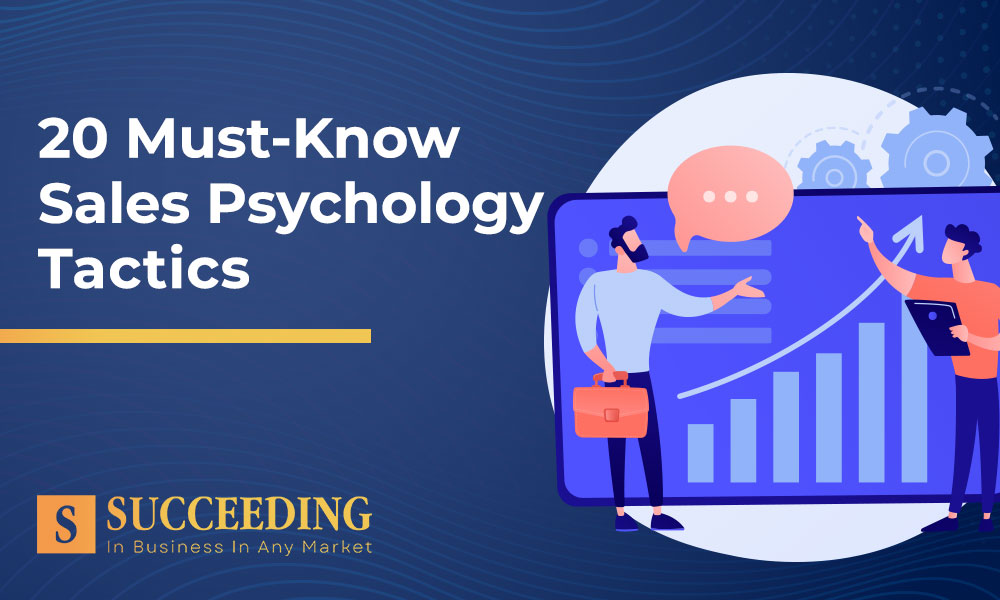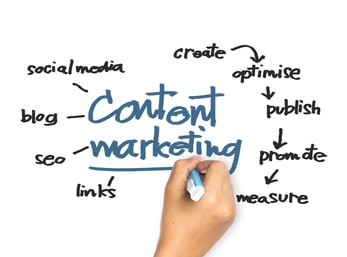Post Date: September 10, 2023

The most important points in the article
In the fast-paced world of sales psychology, where understanding consumer behavior is the key to success, there exists a potent tool that can transform your sales strategy into a force to be reckoned with. Sales psychology is the fusion of psychological insights and strategic sales approaches, and it has the potential to not only boost your sales figures but also leave an enduring impact on your business growth. In this article, we’ll explore a fresh perspective on sales psychology and provide you with new tips and techniques to enhance your sales strategy.
Acknowledge the Foundations:
Before diving into the innovative approaches, it’s crucial to recognize the foundational principles of sales psychology. Dr. Robert Cialdini’s six principles of influence – reciprocity, scarcity, authority, consistency, liking, and social proof – continue to wield immense power in shaping customer decisions. These principles are timeless and serve as a solid base upon which you can build your sales psychology strategy. However, let’s explore some novel ways to integrate these principles effectively.
1. Authentic Reciprocity:
Reciprocity is about giving before receiving, but it’s essential to do so authentically. Instead of just offering something of value upfront, consider personalizing your gestures to make customers feel truly appreciated. Personalized thank-you notes or surprise gifts can go a long way in building a genuine sense of reciprocity.
2. Emotional Storytelling:

Understanding customer emotions is still paramount. Dive deep into your customers’ emotional landscape to craft compelling stories that resonate profoundly. Share anecdotes of how your product or service transformed someone’s life, and let these stories be a driving force in your sales pitch. Emotions, when intertwined with your narrative, create a memorable impact.
3. Trust Beyond Basics:
Building trust and rapport remains pivotal, but take it a step further. Instead of just imitating body language, actively engage in empathetic listening. Show genuine concern for your clients’ needs, and they will trust you not only as a salesperson but as a reliable advisor.
4. Transforming Objections:
Objections are not obstacles; they are opportunities. Embrace objections as chances to understand your customers better. By empathizing with their concerns and providing tailor-made solutions, you not only overcome objections but also strengthen customer relationships.
5. Genuine Urgency:
Creating a sense of urgency is a powerful tool, but it must be authentic. Ensure that limited-time offers and flash sales align with your brand’s integrity. Authentic urgency motivates customers without compromising your credibility.
6. Hyper-Personalization:
In the age of data-driven insights, personalization is no longer an option; it’s a necessity. Leverage customer data to anticipate needs and offer tailored experiences. This level of personalization communicates that each customer is truly valued, fostering loyalty.
7. The Power of Social Proof:
While social proof is a well-established principle, harnessing it in the digital age requires a fresh perspective. Encourage satisfied customers to share their experiences on social media, and leverage user-generated content to build trust among potential buyers. Influencer partnerships can also amplify your brand’s credibility.
8. Data-Driven Decision-Making:
Use analytics to gain deeper insights into consumer behavior. Understand the customer journey, identify pain points, and optimize your sales funnel accordingly. Data-driven decision-making ensures that your strategies are continually refined for maximum impact.
9. Educational Content Marketing:

Position your brand as an industry authority by creating educational content that addresses customer pain points. Blog posts, webinars, and videos that provide valuable insights not only attract potential customers but also establish your brand as a trusted resource.
10. A Holistic Customer-Centric Approach:
Extend your customer-centric approach beyond sales. Provide exceptional post-purchase support and engage in ongoing communication. Solicit feedback and use it to refine your products and services continually.
Important Note At Sales Psychology:
As we conclude our exploration of sales psychology, remember that it’s not just about boosting sales numbers; it’s about forging meaningful connections with customers. By combining foundational principles with innovative approaches, you can revolutionize your sales strategy. The interplay of psychology and sales is a journey towards enhanced sales outcomes and enduring customer relationships.

While we’ve touched on the foundations laid out in our previous article, this fresh perspective highlights new ways to apply them to your sales strategy. Are you ready to harness the psychology of sales to revolutionize your approach? Share your thoughts, experiences, and insights in the comments below, and let’s continue this thriving conversation on the interplay between sales and psychology.
Advanced Strategies for Sales Psychology Mastery
11. Leveraging Artificial Intelligence :
Embrace AI-powered tools to analyze customer data and predict buying patterns. Chatbots and virtual assistants can provide instant support, enhancing the customer experience.
12. Localization for Global Reach:
If your business operates internationally, tailor your sales approach to each market’s unique culture and preferences. Localized marketing campaigns and content resonate more effectively.
13. Customer Segmentation:
Divide your customer base into segments based on behavior, demographics, or preferences. This allows you to create highly targeted marketing campaigns and sales strategies.
14. Continuous A/B Testing:
Never stop optimizing. Conduct A/B tests on your sales messages, website layout, and marketing emails to fine-tune your approach continually.
15. Sales Team Training:
Invest in ongoing training for your sales team. Equip them with the latest sales psychology techniques and empower them to adapt to evolving consumer behavior. How to Hire a Salesperson for a Startup: Tracy’s Tips

16. Ethical Selling:
Incorporate ethical practices into your sales approach. Transparency, honesty, and a commitment to solving customers’ problems should be at the core of your sales strategy.
17. Collaborative Selling:
Consider partnerships with complementary businesses to expand your reach. Joint promotions and referrals can lead to mutually beneficial outcomes.
18. Community Building:
Create a sense of belonging among your customers. Online forums, social media groups, or loyalty programs can foster a community of brand advocates.
19. Multichannel Sales:
Diversify your sales channels to reach customers where they prefer to shop. This may include e-commerce, brick-and-mortar stores, marketplaces, and more.
20. Sustainability and Social Responsibility:
Demonstrate your commitment to sustainability and social responsibility. Today’s consumers often prefer to support businesses with a positive impact on society and the environment.
A Vision for Future Success:
In this ever-evolving landscape of sales psychology, success lies in your ability to adapt, innovate, and connect with your customers on a profound level. The principles of influence, trust-building, objection handling, urgency creation, personalization, and the advanced strategies outlined here converge to guide you toward enhanced sales outcomes and enduring customer relationships.
As you embark on this journey, remember that the fusion of psychology and sales is not just about boosting sales statistics; it’s about leaving an indelible imprint on the hearts of your customers. Are you ready to harness the psychology of sales to revolutionize your approach? Share your thoughts, experiences, and insights in the comments below, and let’s continue this thriving conversation on the interplay between sales and psychology.

Sales psychology is the application of psychological principles and insights to the field of sales. It’s important because it helps businesses understand consumer behavior, build trust, and effectively influence purchasing decisions, ultimately boosting sales.
Emotional storytelling helps you connect with customers on a deeper level. Sharing stories of how your product or service positively impacted someone’s life elicits emotions and makes your brand more memorable.
Creating genuine urgency involves aligning limited-time offers and promotions with your brand’s integrity. Ensure that time-sensitive opportunities are authentic to maintain credibility.
Create educational content, such as blog posts, webinars, and videos, that addresses customer pain points and positions your brand as an industry authority. This content attracts potential customers and establishes trust.
Educational content marketing is a strategy that involves creating and sharing content that aims to educate, inform, and provide valuable insights to your target audience. Instead of directly promoting a product or service, educational content seeks to establish your brand as an authoritative resource in your industry or niche.






